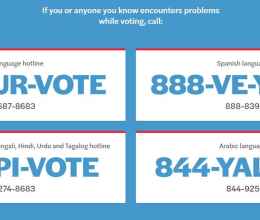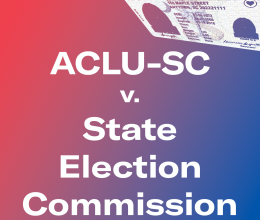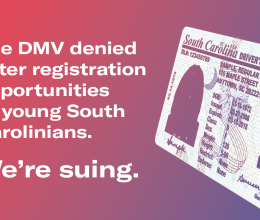
October 10, 2013. Rock Hill Herald. By Anna Douglas. Residents who want to vote in Tuesday’s Rock Hill city election will be asked to show a photo ID at the polls, but York County’s director of elections says no registered voter without the identification will be turned away.
The election will be the first in Rock Hill since new voter ID laws went into effect in South Carolina.
Passed by state lawmakers and signed into law by Gov. Nikki Haley in 2011, S.C.’s voter ID law was challenged by the U.S. Department of Justice prior to the 2012 presidential election.
Federal judges sided with South Carolina, but said the law could not be implemented until 2013 and that certain allowances must be given to those who can not produce a photo ID at the polls.
The law says that voters must have one of the following forms of ID: an S.C. driver's license, an ID card issued by S.C. Department of Motor Vehicles, an S.C. voter registration card with photo, a federal military ID or a U.S. passport.
Registered voters who cite a “reasonable impediment” to obtaining one of those forms of ID will still be allowed to vote on Oct. 15.
And, voters who have a photo ID but forgot to bring it with them will still be allowed to vote.
The state election commission lists the following examples of acceptable “reasonable impediment” claims:
• Religious objection to being photographed
• Disability or illness
• Work schedule
• Lack of transportation
• Lack of birth certificate
• Family responsibilities
• Any other obstacle a voter finds reasonable
Voter certification procedures are different for voters who have an ID but forgot it than they are for those who cite a “reasonable impediment” and do not have an ID.
But, York County will follow state law and allow all registered voters to cast their ballots, said Wanda Hemphill, director of the county’s voter registration and elections office.
Voters who say they had a “reasonable impediment” to obtaining an acceptable form of photo ID will be asked to complete a “provisional” ballot.
Those voters will be asked to show their current, non-photo voter registration card and to sign an affidavit to attest to their identity, according to the state election commission. County election officials will count a voter’s provisional ballot, unless they have reason to believe that the voter’s affidavit is false.
Voters who have a valid photo ID but forget to bring it to the polls will also be asked to sign a provisional ballot.
But, for their vote to be counted, they will have to provide their photo ID to county election officials prior to the election certification, which is expected to happen at 10 a.m. on Oct. 17.
Hemphill and her staff have already supervised one election under the new voter ID laws.
In April, Fort Mill voters authorized the school district to spend $54 million to improve facilities and build an elementary school.
The Fort Mill bond referendum vote under the new ID law was “fairly uneventful,” Hemphill said.
Most people who turn out to vote in small, local elections, she said, will have one of the five forms of acceptable identification – usually a driver’s license.
Voters who forget to bring a photo ID will first be asked whether they can go home and retrieve the ID, she said. Doing so will save the voter time later, Hemphill said.
Using a provisional ballot because a voter forgot the photo ID means that after election day, the voter will need to go to York to present their photo ID to officials.
Voters without photo ID at Rock Hill’s polls will also be given the choice to use a voter ID station set up at City Hall on Oct. 15.
There, a photo will be taken and the voter will immediately receive a temporary voter registration card with a photo. A permanent registration card with a photo will be mailed to the voter after the election.
The county elections office has received only a few questions about the voter ID requirements and the law, Hemphill said.
And, during free informational sessions held in Rock Hill in August and September, participation varied with as few as five people turning out to receive a free photo ID.
Still, the director of the American Civil Liberties Union of South Carolina says the state’s voter ID law has caused confusion for voters and could still cause suppression, although allowances for those without ID exist.
The ACLU monitored the first test under the new law in March, during the 1st Congressional District primary held in Charleston, Colleton, Beaufort, Berkeley and Dorchester counties.
No signs of voter suppression were detected, but that could have been because the ACLU and federal justice officials were watching, said Victoria Middleton, state ACLU director.
ACLU representatives do not plan to monitor Rock Hill’s election, she said, but will be available if voters believe their rights have been violated at the polls.
Middleton recommends that voters contact local and state election officials as soon as possible if they believe their rights have been violated.
Hemphill and other county elections office leaders will be in Rock Hill, visiting precincts and overseeing the polls, she said.






